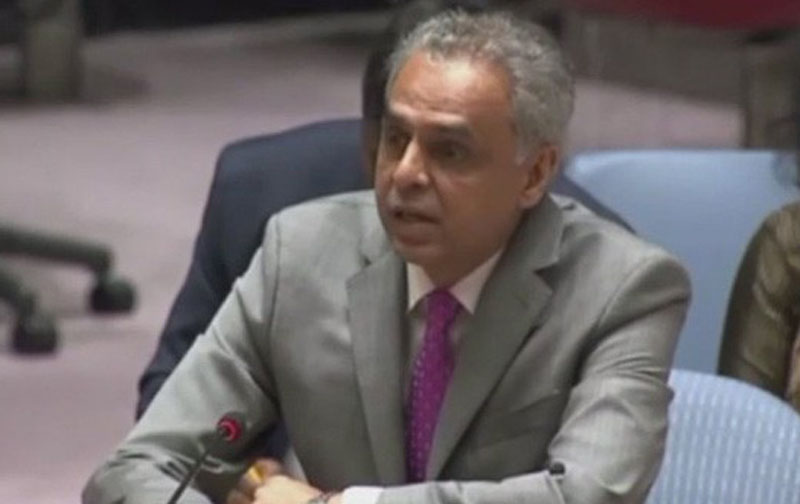New York: In a veiled attack on Pakistan, India’s Ambassador and permanent representative to the United Nations, Syed Akbaruddin on Monday said that terror offences in Afghanistan are perpetrated by those harboured in safe havens in the country’s ‘neigbourhood’.
In a statement made at the UN Security Council Open Debate on ‘The Situation in Afghanistan’ Akbaruddin said, “Taliban, aided by their supporters, continue to pursue military operations, perpetrating violence over several parts of Afghanistan. These offences are planned and launched by those harboured in safe havens in the neigbourhood of Afghanistan.”
Continuing the covert attack on Pakistan, he further added that these sanctuaries have been aiding terror outfits for years. “These sanctuaries have, for years, provided safety for dark agendas of ideologically and operationally fused terror networks like Taliban, Haqqani Network, Daesh, Al Qaeda and its proscribed affiliates Lashkar-e-Taiba and Jaish-e-Mohammed,” he said.
Commenting on the funding of these dreaded outfits Akbaruddin stated that these organisations are financed, “not only from extortion and forced levies and taxes, but also benefit significantly from criminal networks operating drug cartels and stealing Afghanistan’s natural resources.”
“By some estimates, 60% of the Taliban’s revenues are from the drug trade. Poppy cultivation is said to be the largest cash crop in Taliban-controlled areas,” the Indian Ambassador said, adding, “Council’s Resolution 2405, adopted earlier this year, does focus on linkages between extremism, terrorism, drug production, however, it falls short of expectations in striving to cripple the Taliban’s drug trade.”
He cited the example of how the Islamic State’s oil revenue fell over 90 per cent, from around $50 million a month to just about $4 million, when efforts to curb their revenues were made.
“By contrast, the opium produced in Taliban-controlled areas is estimated to account for 85 per cent of global illicit production, valued between $1.5 billion to $3 billion. We feel it is time for this Council to try and replicate the success of the international community against the Islamic State’s illicit business in Syria and Iraq by similarly crippling the Taliban’s illicit drug trade,” the statement read.
“India is willing to work with all countries in the region and beyond, keeping Afghan priorities at the forefront, so as to bring a lasting solution to the situation. Afghans should lead these efforts, not only between governments but with civil society and business as stakeholders. India stands ready to support Afghanistan in every way we can. Our focus remains on the economic pillar of stability and reliable connectivity for the people of Afghanistan,” the statement concluded.
[source_without_link]ANI[/source_without_link]

